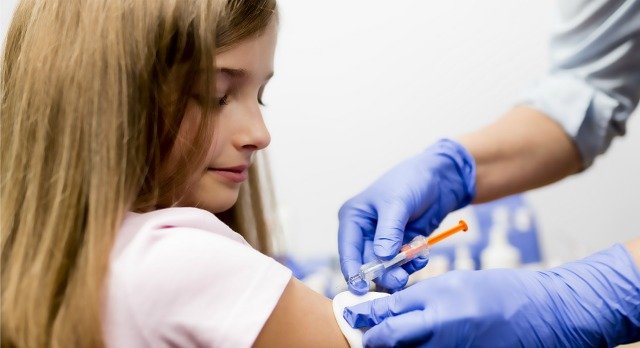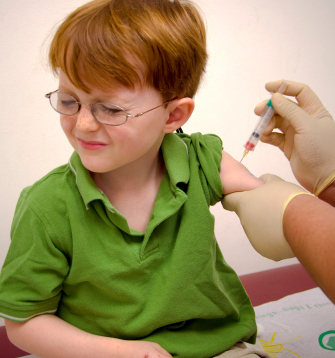As millions of American children head back to school, the Centers for
Disease Control and Prevention (CDC) is reminding parents of the
importance of vaccinations by declaring August “National Immunization
Awareness Month.”
During the early years of life, the American Academy of Pediatrics recommends all children receive vaccinations that will protect them from 14 different diseases – some of which can be life-threatening.
“Immunizing your child is probably one of the most important things you can do to keep your child healthy and prevent disease,” said Dr. Elaine Schulte, a pediatrician at Cleveland Clinic Children’s Hospital.
From the time your child is born until he or she is 6 years old, your doctor may suggest following a schedule of immunizations to him or her from preventable diseases like hepatitis A and B, measles, mumps, rubella, polio, pertussis (or whooping cough), tetanus, diphtheria, chickenpox, and sometimes even flu and pneumonia.
Flu vaccines are recommended for kids in preschool and elementary school to help keep them healthy, according to the CDC. In fact, the agency suggests that all children 6 months and older get flu shots yearly along with their parents and others in the household.
If your child is heading into his or her tween years, he or she may need some booster shots for things like tetanus (which also covers whooping cough and diptheria) and chickenpox. Experts also recommend considering the human papillomavirus (HPV) vaccine for both boys and girls around 11 or 12 years old. The HPV vaccine helps protect against strains of the virus that cause genital warts and those that cause cervical and oral cancer. One recent study found the HPV vaccine to be effective up to eight years after it’s given with no significant adverse side effects.
Parents sending their teens off to college should check with the institution about the requirement for a meningitis vaccine. Meningococcal conjugate vaccine helps prevent two of the three most common causes of meningococcal disease, which can be very serious—even life-threatening, according to the CDC.
The immunization schedule begins soon after birth, but there is a catch-up schedule for parents who start late or fall behind.
“It’s never too late to bring your child into the office to make sure that they’ve been age-appropriately immunized,” Schulte said.
During the early years of life, the American Academy of Pediatrics recommends all children receive vaccinations that will protect them from 14 different diseases – some of which can be life-threatening.
“Immunizing your child is probably one of the most important things you can do to keep your child healthy and prevent disease,” said Dr. Elaine Schulte, a pediatrician at Cleveland Clinic Children’s Hospital.
From the time your child is born until he or she is 6 years old, your doctor may suggest following a schedule of immunizations to him or her from preventable diseases like hepatitis A and B, measles, mumps, rubella, polio, pertussis (or whooping cough), tetanus, diphtheria, chickenpox, and sometimes even flu and pneumonia.
Flu vaccines are recommended for kids in preschool and elementary school to help keep them healthy, according to the CDC. In fact, the agency suggests that all children 6 months and older get flu shots yearly along with their parents and others in the household.
If your child is heading into his or her tween years, he or she may need some booster shots for things like tetanus (which also covers whooping cough and diptheria) and chickenpox. Experts also recommend considering the human papillomavirus (HPV) vaccine for both boys and girls around 11 or 12 years old. The HPV vaccine helps protect against strains of the virus that cause genital warts and those that cause cervical and oral cancer. One recent study found the HPV vaccine to be effective up to eight years after it’s given with no significant adverse side effects.
Parents sending their teens off to college should check with the institution about the requirement for a meningitis vaccine. Meningococcal conjugate vaccine helps prevent two of the three most common causes of meningococcal disease, which can be very serious—even life-threatening, according to the CDC.
The immunization schedule begins soon after birth, but there is a catch-up schedule for parents who start late or fall behind.
“It’s never too late to bring your child into the office to make sure that they’ve been age-appropriately immunized,” Schulte said.

